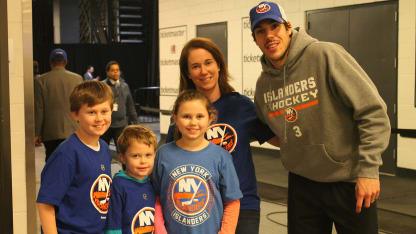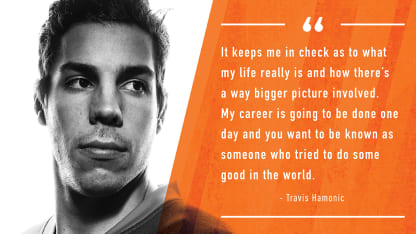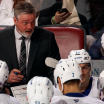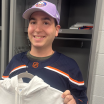Travis Hamonic wasn't expecting any award nominations for his work with children. Recognition wasn't on his mind while he was supporting grieving kids over the past five years, he just did it because it was the right thing to do and he unfortunately can relate to their experience.
But five years into his Hamonic's D-Partner program, Hamonic and his mission are in the NHL spotlight, as he was named a finalist for the NHL Foundation Player Award on Wednesday night.
Hamonic Humbled By NHL Award Nomination
Travis Hamonic named a finalist for NHL Foundation Player Award




















